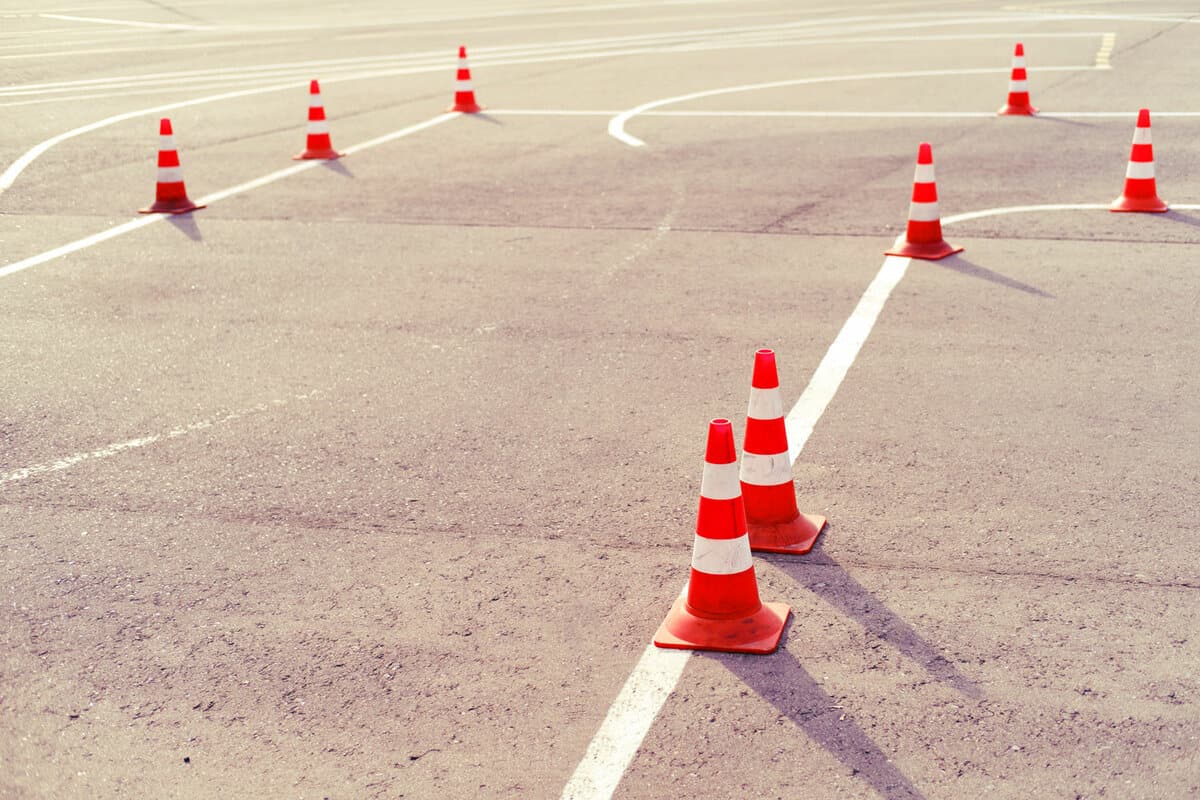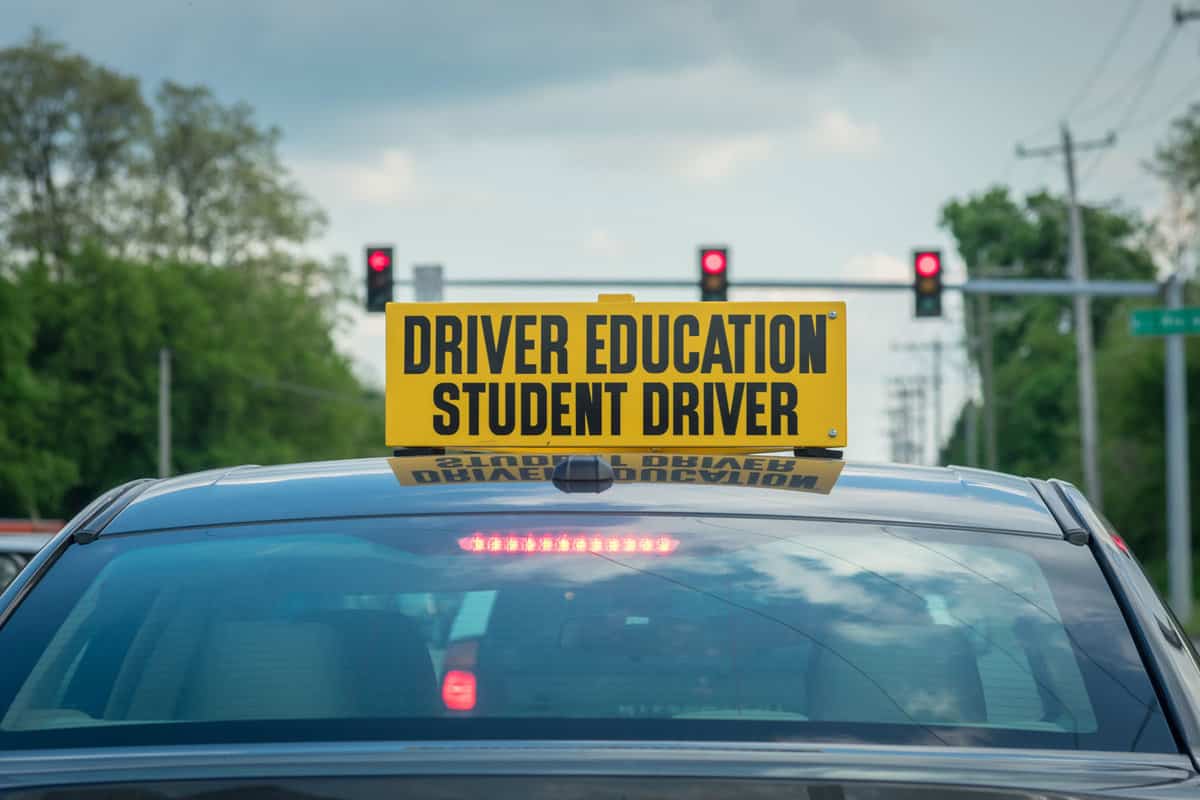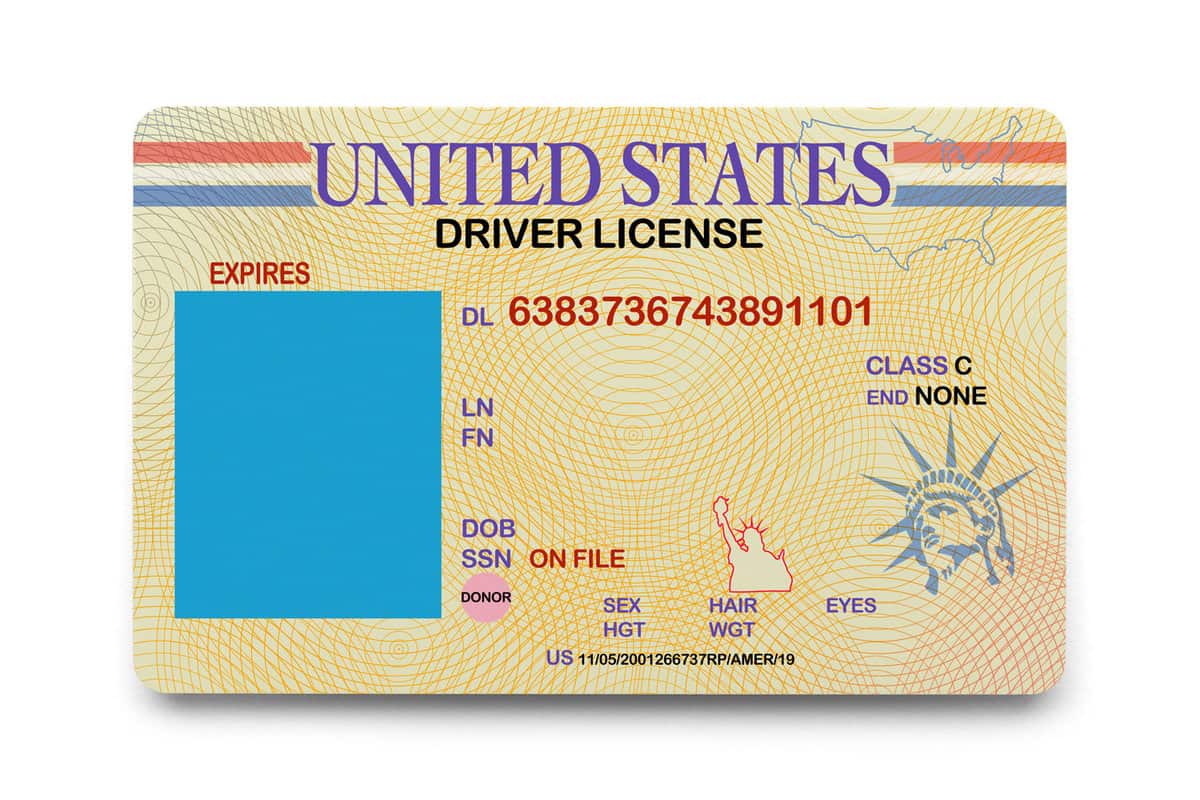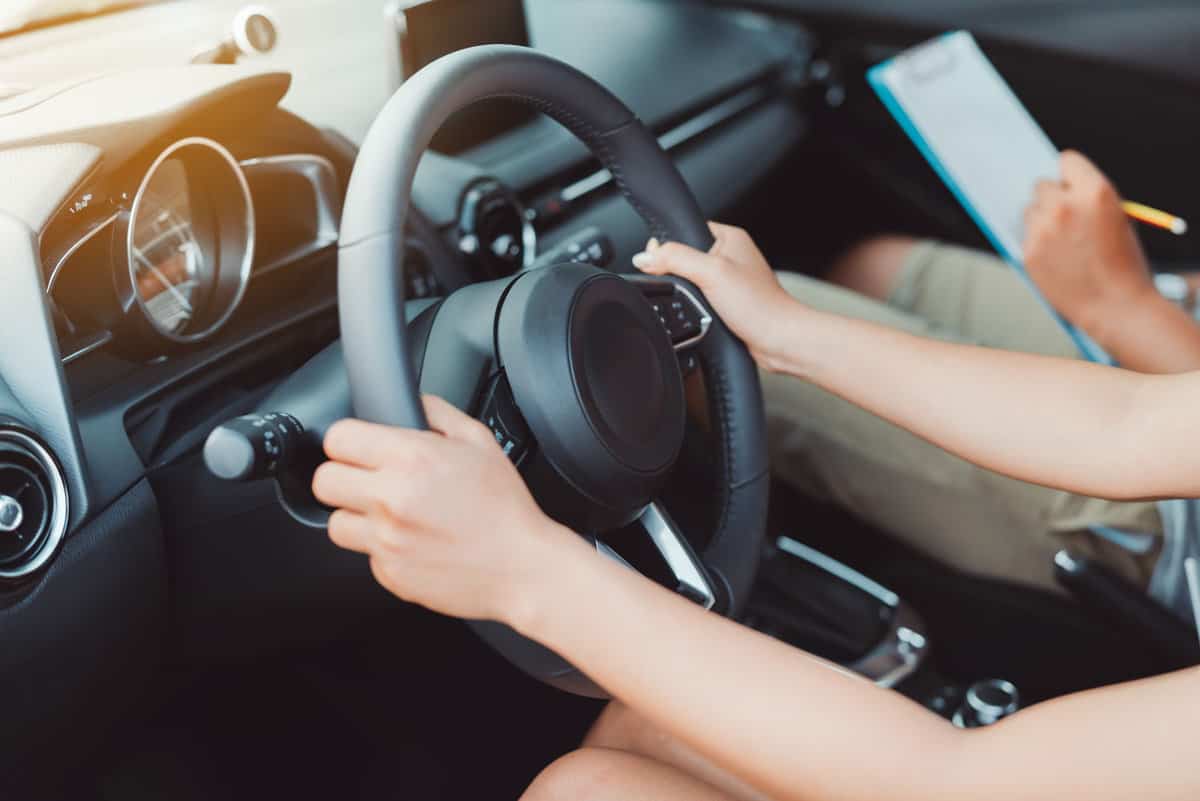Learner's permits are usually given to minors to safely learn to drive while under the careful supervision of a licensed driver. If you wonder if you can practice driving without this permit, we can help you.
We researched driving laws from professional sources to give you the best answer before you get behind the wheel.
In general, it is illegal to drive on public roads without a driver's license or learner's permit. The penalties for doing so can be severe but vary from state to state.
These include hefty fines and even criminal charges, so make sure you have a permit before getting behind the wheel.
Now that we know that driving on any public roadway without a permit or driver's license is typically illegal, we'll look at some of the penalties if you are caught.
You might also be curious if there is any legal way to learn to drive without a permit or who is legally able to teach your child to drive. For the answers to all of these questions and more, read ahead!
![Woman taking a student drivers learning exam, Can You Practice Driving Without A Permit? [By State]](https://vehq.com/wp-content/uploads/2022/05/Can-You-Practice-Driving-Without-A-Permit-By-State-1.png)
What Driving Without A Permit/License Can Cost You In Certain States
You never want to get caught driving without a valid driver's license. No matter your age or your level of driving experience, the consequences of operating a motor vehicle, unless authorized by your state to do so, will cost you a great deal.
It's worth noting that there are generally no permit limitations if you are driving on private property with someone that has their license.

These penalties for the first offense will vary from state to state, but it will not be good news no matter where you break this law.
Texas
You can drive on private property without a permit as long as you are with someone over the age of 21 and they have their license.
However, if you drive on public roads in Texas without a license or permit, you can face a $200 fine for the first offense. The fine for the second offense is the same. But risk it a third time, and you'll find yourself with a possible jail sentence of up to six months in jail and a fine.
Should you have a license suspended or revoked in Texas, the penalties are stiffer. The first offense is a Class C misdemeanor with a fine of up to $500.
A second offense will possibly lead to more significant fines and jail time.
California
The laws in California are a bit more strict than those in Texas. For driving without a license or permit, you will face up to $1,000 in fines and a jail sentence of up to six months.
New York
First-time offenders driving without a license or permit in New York can face a fine between $75 and $300. In addition to this fine, there is a potential jail sentence of up to 15 days behind bars.
Florida
Florida doesn't take too kindly to this offense, either. Without a permit or license, you can be sent to jail for up to 60 days and have up to $500 in fines to pay. And that is just for the first offense!
Pennsylvania
Pennsylvanians will face a fine of up to $200 for operating a motor vehicle without a valid permit or license. No matter what state you live in, know that you will face severe consequences for driving without a license or learner's permit.
Getting caught can cost you financially, and you can even risk going to jail for breaking this law. Even if you're learning to drive, get properly permitted before getting behind the wheel.
How Can I Legally Practice Driving Without A Permit?
Any public property, whether they are roadways or parking lots, will require you to have a learner's permit or a driver's license to drive on. But there are still some spots that you could technically practice without any legal document.
If you are on private property, you can drive without a license. This includes driveways, farm grounds, private roads, etc.
But as easy as it is to qualify for a permit, wouldn't you be better served just getting a learner's permit?
Doing so will give you free rein on where you can practice driving. You'll probably learn a lot faster and will be able to know what it's like to drive around other drivers and pedestrians.
How Do I Qualify For A Learner's Permit?
While each state will have different requirements to qualify for a learner's permit, certain ones are universal. All 50 states will require that you pass a vision test and a written exam.
You will also need legal documents that will verify your identity.
If you are under 18, parent or guardian consent must be signed. There will also be an application to fill out and a small permit fee to be paid.
What will vary from state to state can be a bit overwhelming.
Let's take a look at the major differences below:
Minimum Age
The age at which a state will allow for a learner's permit dramatically varies. Some states, like Alaska, Kansas, and Iowa, will allow people as young as 14 to apply.
But some states won't allow for a learner's permit to be given until the minor is at least 16..
There are three phases of driver's licenses in all 50 states. The learner's permit is just the beginning. After completing the learner's permit processes and qualifying for a driver's license, you can take the next test for your restricted license.
The age for this license will also vary, but in most states, you are eligible at 16.
Restricted licenses will allow you to drive without the supervision you need while driving with a learner's permit. You won't need a licensed driver in the car, for example.
But you won't be able to drive after certain hours, and some states will limit the number of passengers you can have on board.
Driving Classes

The amount of time you'll need to spend behind the wheel with a licensed driver will vary significantly from state to state.
Some states, like Texas, will require you to only drive with someone affiliated with a certified driver's education program. Parents can teach their children to drive as long as they apply and can get certified to teach them to drive.
Restrictions
There are various restrictions for those driving on a learner's permit that is different in every state. The times of day that you can drive widely varies. The age of the supervising driver is another.
The number of hours you'll need to spend driving with a learner's permit will also be different across state lines.
But to qualify for the next step in driver's licensure, you'll need to spend the required amount of time behind the wheel with your learner's permit before sitting for a full driver's license examination.
A Learner's Permit Validity

Each state will have its independent period of learner's permit validity. These can be as short as two years or as long as five years.
No matter what state you live in, familiarize yourself with the laws surrounding getting a learner's permit. You can readily have this information at your local DMV office or your state's webpage.
Who Can Teach My Child To Drive?
You might think that as a parent, you can hop into the passenger seat and begin to instruct your child on the how-tos of operating a car or truck.
And while this is the case in most states, some put some restrictions on who qualifies as a teacher.
In Texas, for example, we discussed earlier that a parent or guardian must first become qualified by the state to teach their child. It's not a complex process to get this certification, but it needs to be done before you start teaching them.
Other states, including California, will allow for a parent or guardian to teach without any registration with the state.
The parent must hold a valid driver's license, be willing to accept liability, and must also have the vehicle insured. You must meet these requirements in all 50 states.
To Finish

Getting a learner's permit to drive a vehicle will take time but is easily done in all 50 states as long as you qualify. Never drive without a valid driver's license or learner's permit, as the penalties are steep no matter what state you break the law in.
Be aware of your learner's permit restrictions and be prepared to have a restricted license before you qualify for a full one. Drive safe!
Made it this far? Check out these helpful related posts below!
Can I Drive For Uber In Another State? [And How To Transfer]

Can I get a Handicap placard on line